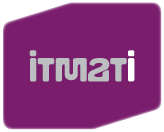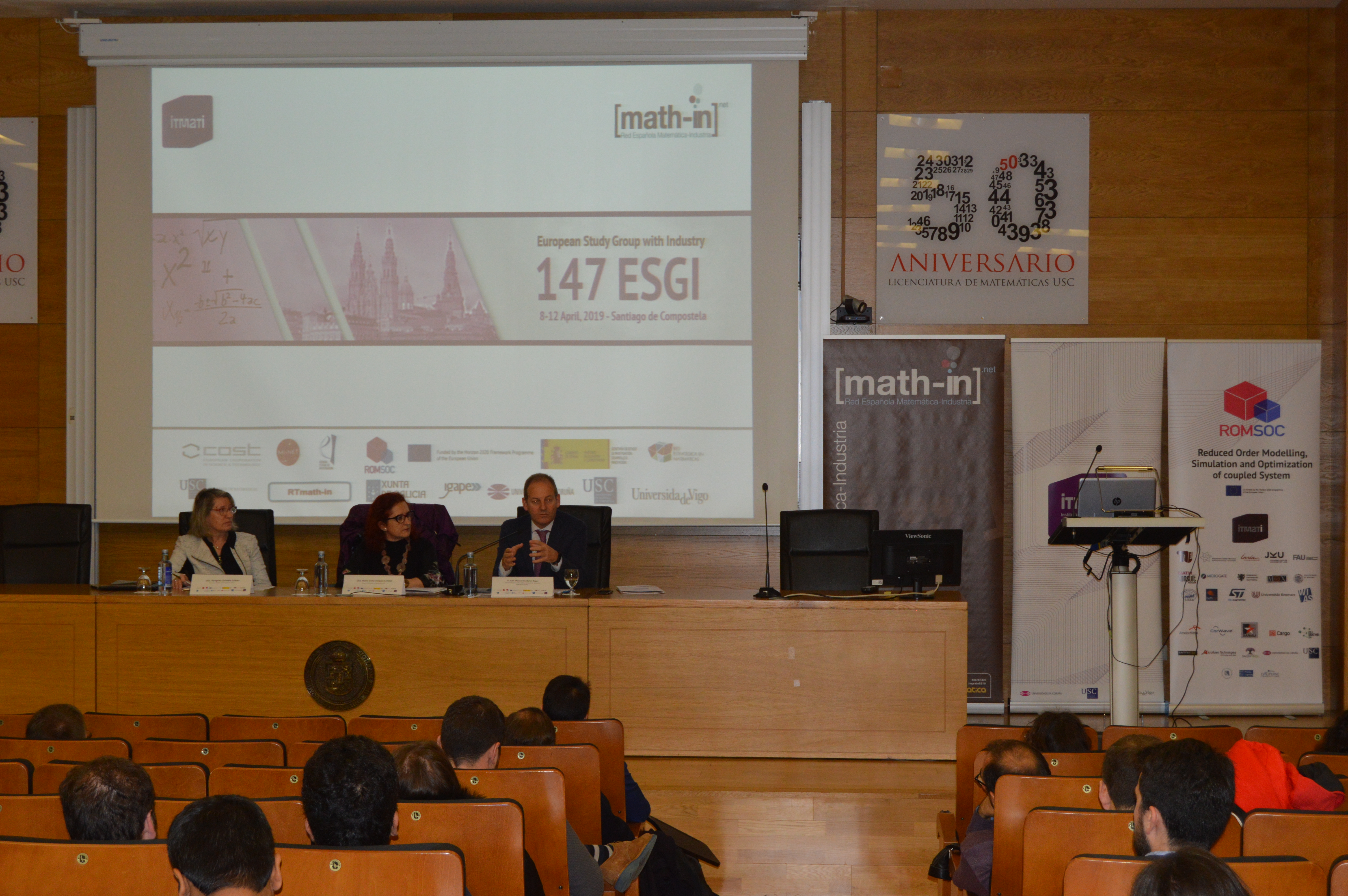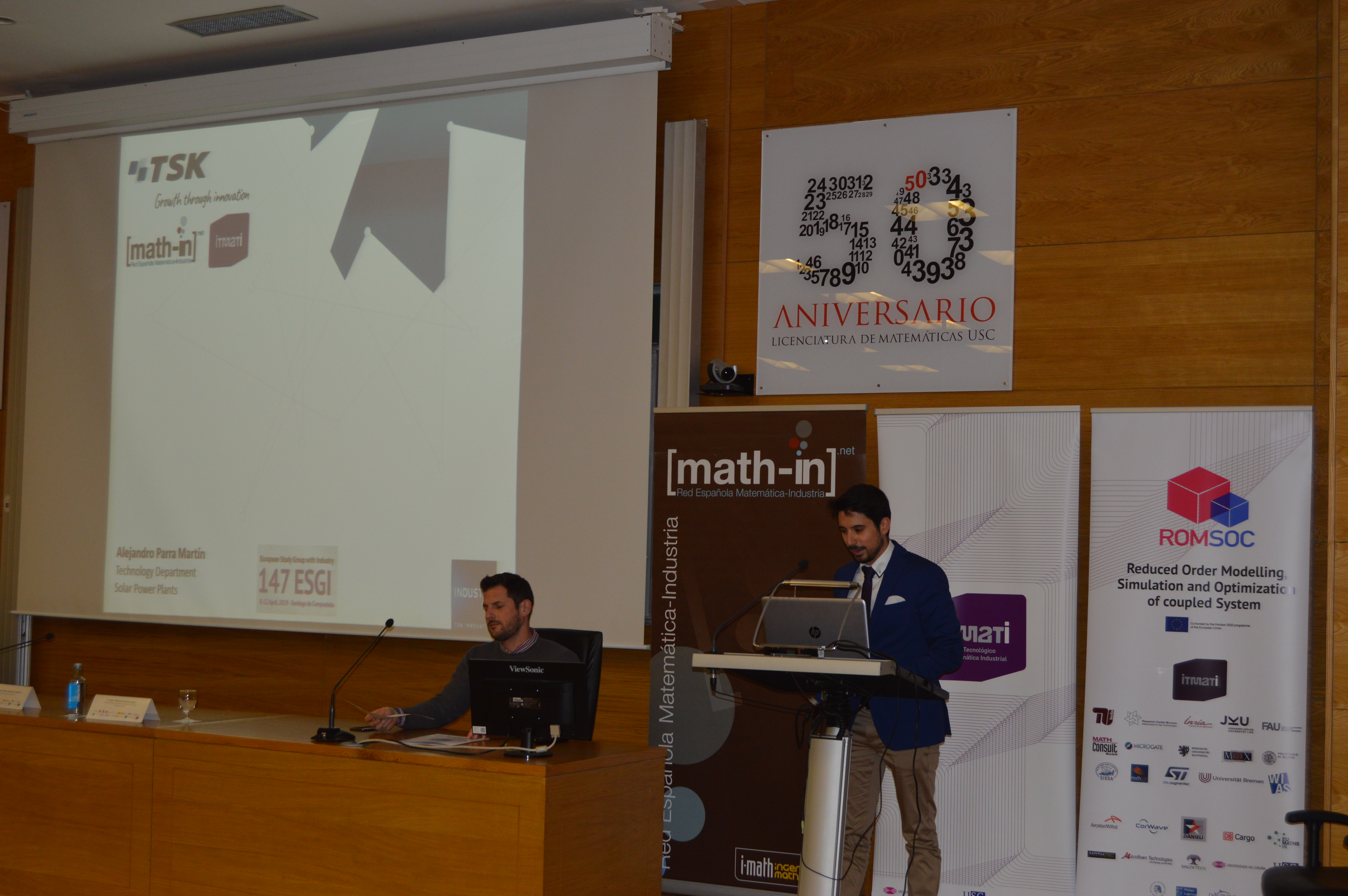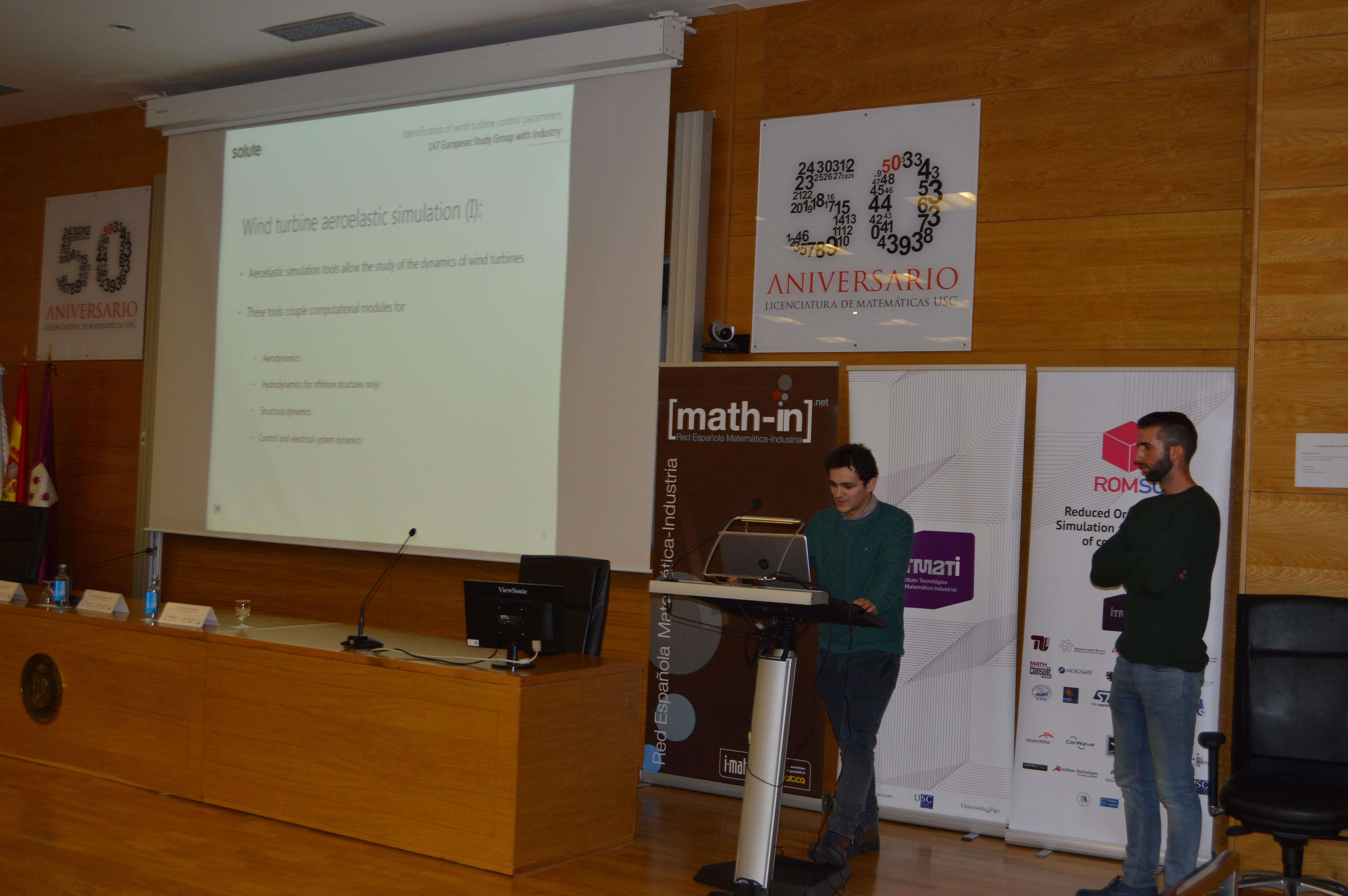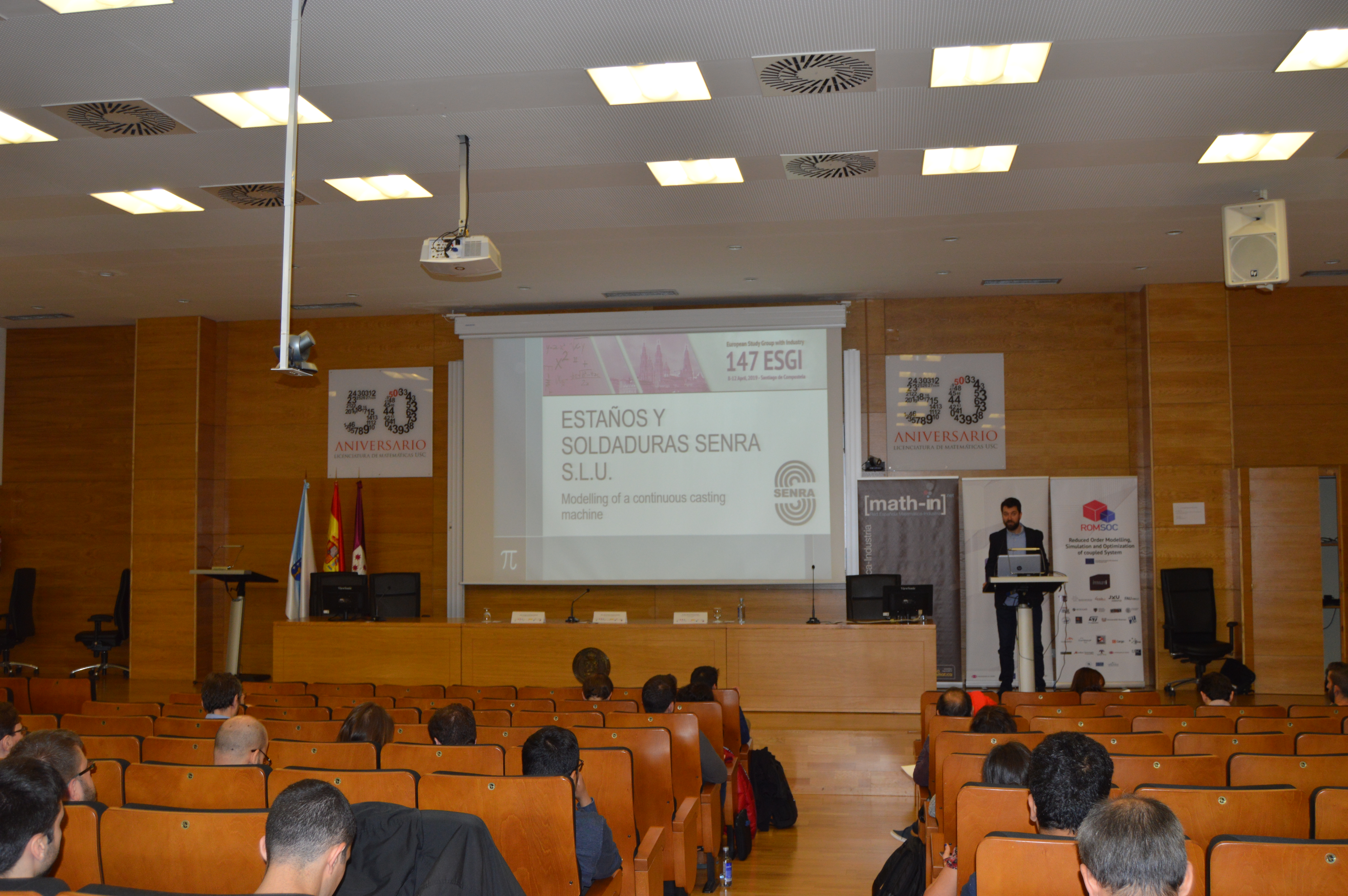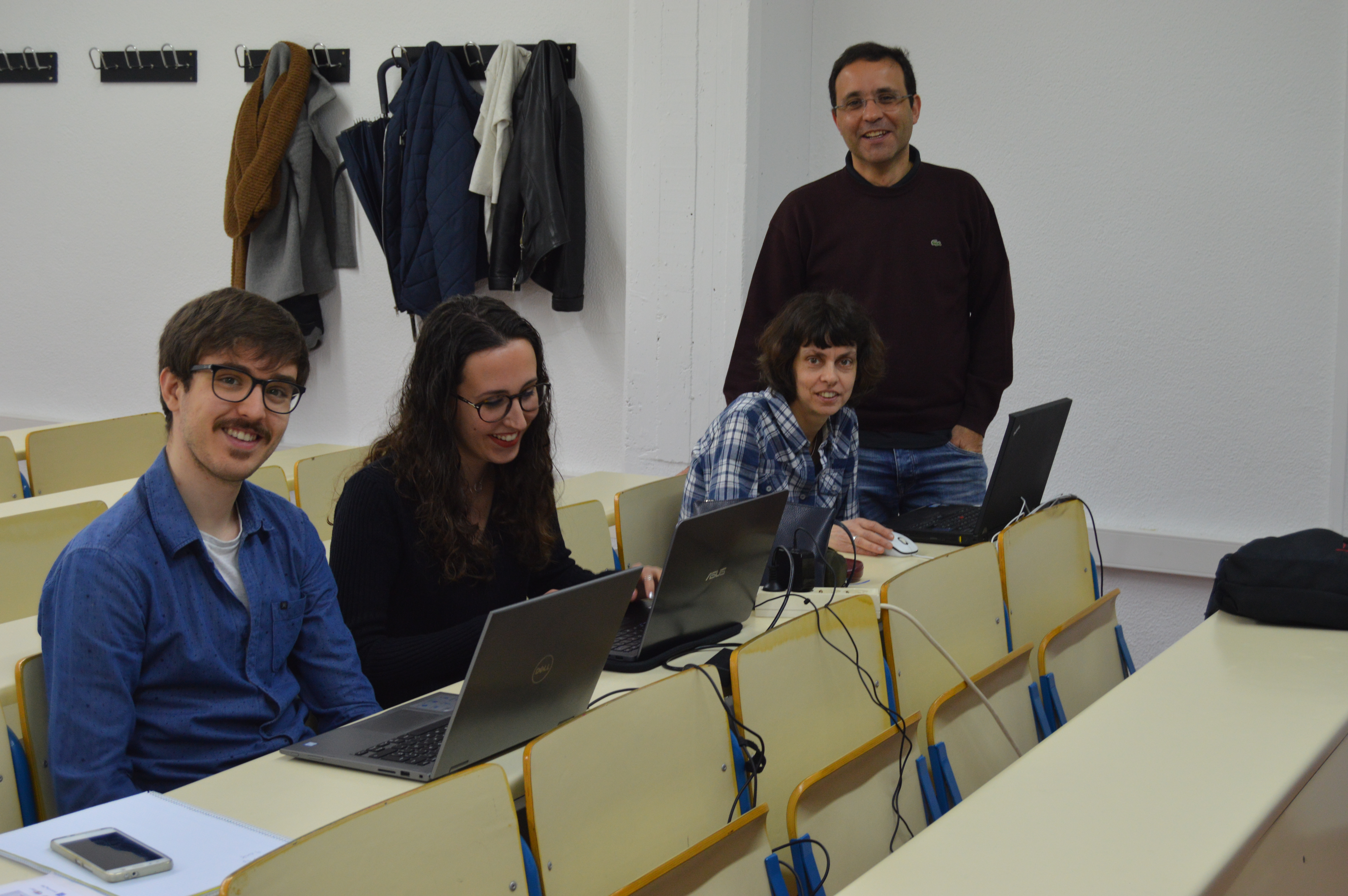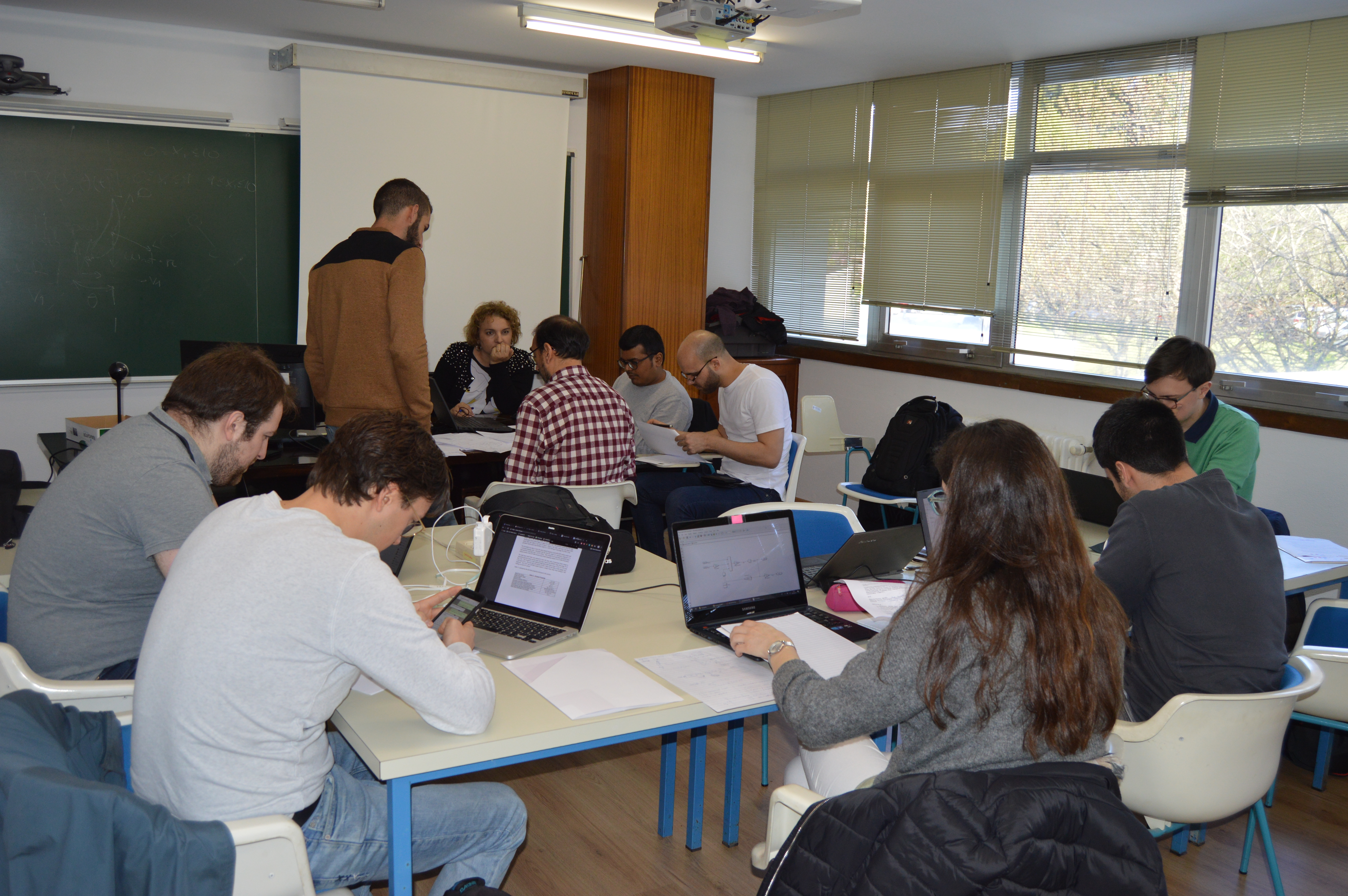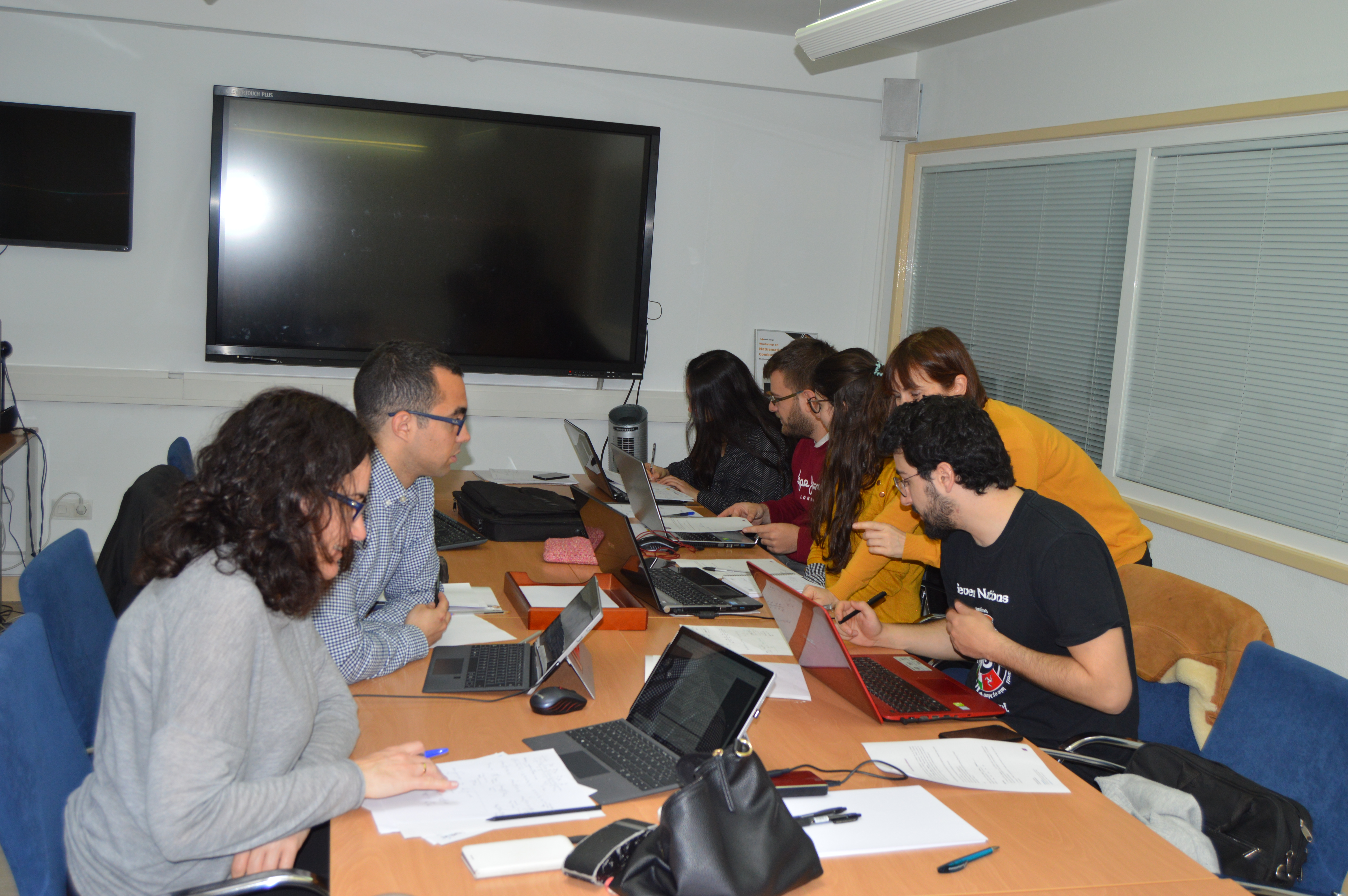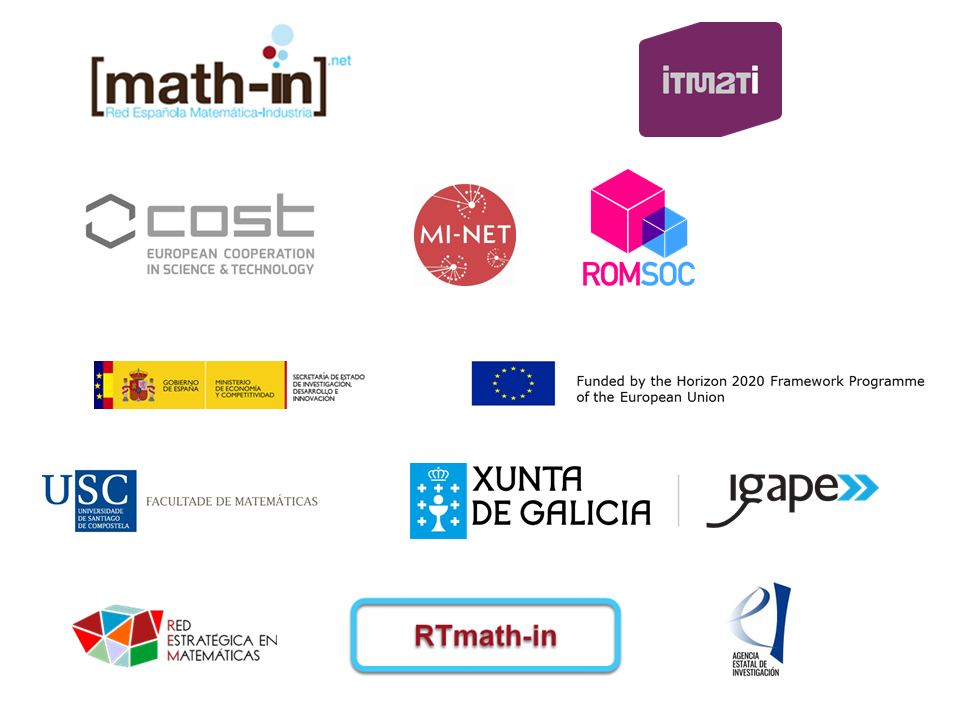147 ESGI concluded with a successful participation and results.
Initiated in Oxford in 1968, Study Groups with Industry provide a forum for industrial scientists to work alongside academic mathematicians on problems of direct industrial relevance. They are an internationally recognized method of technology and knowledge transfer between academic mathematicians and industry. The success of the ESGI is the unique format which has been copied around the world, in which mathematics community works on reduced groups to study problems, proposed by industry. These problems are presented from any economic sector thanks to the Mathematics' transversally. The objective is to present the capabilities of Mathematicians and the applicability of Mathematics in a large part of the challenges and needs of the industrial, bringing small, medium and large companies a technology with great potential, with highly qualified researchers and that does not require large investments to use.
GOALS:
- to find solutions and insights into existing industrial problems;
- to establish lasting and productive working links between applied mathematicians and industry;
- to propose new lines of research based on business challenges;
- to reinforce the importance of mathematics in industry and and to open new jobs of mathematical profile in companies; and
- to stimulate greater awareness in the wider community of the power of mathematics in providing solution paths to real-world problems.
147 ESGI concluded with a successful participation and results: the participating researchers managed to find solutions to the three industrial problems. The three companies that posed challenges related to thermosolar sector, wind turbine industry and the improvement of industrial processes in the manufacturing industry were: TSK, Solute and Estaños y Soldaduras Senra. Technologies such as big data, machine learning and MSO (Modeling, Simulation and Optimization) are behind the solutions, since to reach the automation of the processes first mathematical methodology is needed. Converting a sum of complex calculations in a simplified model without losing accuracy, finding the expression of a physical phenomenon in which numerous variables participate or looking for the relationship between the data collected by sensors are some of the tasks that a mathematician has to address before the machines can get to do their job.
INDUSTRIAL PROBLEMS
In the 147 ESGI three problems were presented:
PARTICIPATING ENTITIES AND ENTERPRISES
FURTHER INFORMATION: http://www.math-in.net/147esgi/en
MENTIONS IN MEDIA:
- El Pais (10/04/2019)
- USC (8/04/2019)
- Xunta de Galicia (8/04/2019)
- Europa Press (8/04/2019)
- Galicia Press (8/04/2019
- Capital (8/04/2019)
- IGAPE (8/04/2019)
- RSME (8/04/2019)
- SCCB
- USC
- USC
- ECMI
- ICIAM 2019
- ICIAM 2019- Twitter (4/02/2019)
- SGAPEIO
- MI-NET
- La Voz de Galicia (20/08/2018)
PRESS RELEASES
- PRESS RELEASE: “During a week mathematical experts will try to solve real business problems” (click here)
- NOTA DE PRENSA: "Las matemáticas se demuestran eficaces en metalurgia, sector energético y procesos industriales" (click here)
Spanish Network for Mathematics & Industry (math-in) and the Technological Institute for Industrial Mathematics (ITMATI). Co-organizer: COST Action Mathematics for Industry Network (MI-NET).
COST Action TD1409, Mathematics for Industry Network (http://mi-network.org/), granted by the European Cooperation in Science and Technology (http://www.cost.eu/), co-financed this event.
The 147 ESGI was also co-funded by:
- the Ministry of Economy, Industry and Competitiveness – State Research Agency with the nº of reference MTM2016-81745-REDT through the Thematic Network RTMath-in, granted within the call “Networks of Excellence” 2016
- Galician Institute for Economic Promotion (IGAPE) from the Reginal Government of Galicia
- the Strategic Network in Mathematics with the nº of reference MTM2016-81711-REDE and by
- ROMSOC project, financed by the EU within the Horizon 2020 Research and Innovation Programme under the Marie-Skłodowska-Curie grant agreement No 765374.



